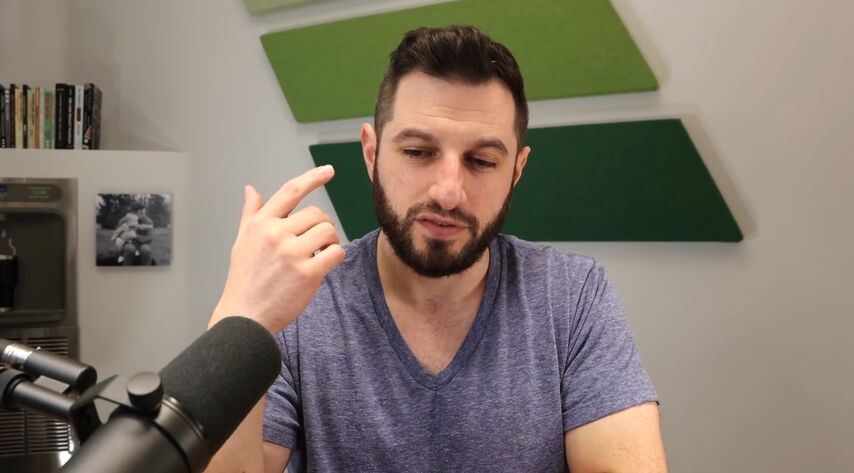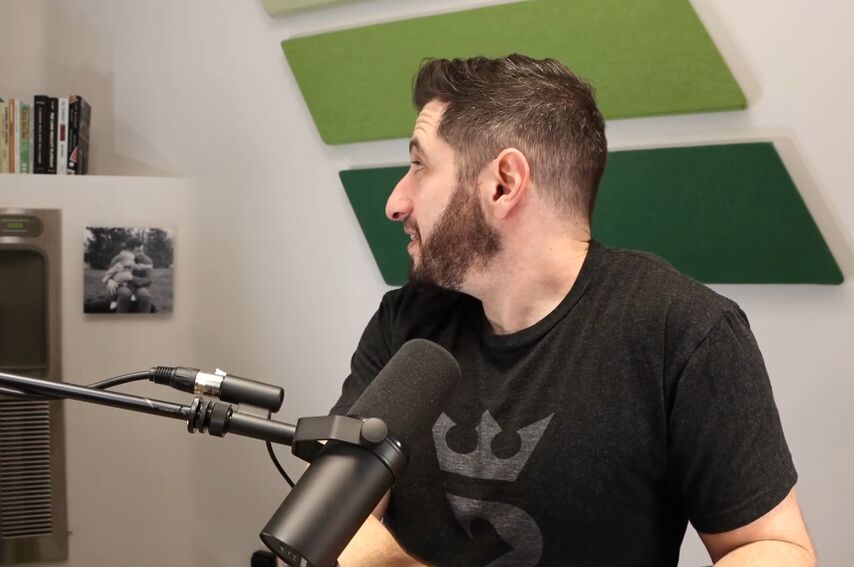(We continue to bring you more analysis from poker legend Phil Galfond by sharing this article from August of 2021)
About the differences between a live game and an online game
There is an opinion that online poker and live poker are two different games, that online is pure fortune telling, and live we can name our opponent’s cards just by looking into his eyes. Believe me, this is not true at all and online is much closer to live than it seems. For the vast majority of players, they are not different from each other at all.
I would say that the information available to us live and online is about ten percent different, and it's a different ten percent. Both live and online provide us with additional data. Online we have statistics that help determine the style of players. In a live game, the ability to understand people can help us. Sometimes it’s enough to exchange a few words with the player in the next seat, and we already understand who we’re dealing with.
The core of the game remains unchanged. We must have a good, healthy strategy, a good general understanding of poker, and we must know basic mathematics. We're not trying to guess what cards the dealer will show! Poker is not a lottery game, but a strategic one. Like chess – you can also play it online, but it’s still chess.
Yes, poker is a game with incomplete, or rather, partially hidden information. Each player knows only his own cards. Therefore, it becomes theoretically possible to read an opponent by his behavior. But for most players, it remains theoretical. We greatly exaggerate our skills in this area because we remember the times when we were right and forget the mistakes. Even people who really know how to notice patterns in the behavior, facial expressions, and gestures of their opponents receive useful information quite rarely, in a small percentage of cases.

Finally, there are truly elite behavioral psychologists who read much more than others. They get a really big advantage in live play. However, there are very few of them – no more than two or three dozen people in the whole world. The poker club near you most likely won't have them.
Playing online also cannot be completely devoid of psychology. Yes, there are reads online too. Just like when playing live, we can get additional information by analyzing the size of the opponent’s bet (perhaps a similar situation arose earlier, we remember his cards and the line he chose) and the speed of decision-making. Live, we also see the movement of the hand sending chips to the bank, and the facial expression, but I want to repeat once again: most likely, neither you nor your opponents will be able to draw anything valuable from this. So don't be afraid to bluff in a live game. Even if your poker face isn't perfect, it won't matter. If you think bluffing is profitable, bluff.
Noticing that your opponent is nervous is not that difficult. However, for example, I always get nervous when the pot increases sharply, both when I bluff and when I collect value. I think this is true for most players. You can read an emotion, but interpreting it correctly is a completely different matter. Only a few people are capable of this.
The opponent I miss
There are a few people who have lost a lot to me online, I could tell you I miss them. But I will answer that most of all I miss Viktor Blom at the tables. It was very exciting to play with him – both difficult and interesting. I played both the most positive and the most negative sessions of my career against him. In total, I think I have a small plus.
Viktor was an atypical opponent for me. After all, as you may know, I hardly studied theory and certainly worked less than other high rollers. My understanding of the technical side of the game was noticeably worse, but I managed to outplay them in leveling and adjustments. I made faster and more accurate judgments about the situations in which my opponents would be more likely to make mistakes, and sometimes I could predict their intentions. My qualities were especially valuable in the pre-solver era, when a lot was based on the dynamics of the game and people often changed their strategy during the session. They change, but I have already adjusted and am sitting in ambush...
I was superior to everyone or almost everyone in this, but Viktor turned out to be even stronger! Fortunately, he was working on the game even less than me, so I could resist him, and that’s why our fights were so exciting. I took great pleasure in trying to keep up with him where I regularly outperformed everyone else, and suddenly felt superior in a field of theoretical knowledge that was usually alien to me.
To be honest, although our confrontations ended in a small gain for me, I was never able to catch up with him in flexibility and cunning plays. Adjustments, counter-adjustments, the ability to always be one step ahead – this is what he was the best at. You change something right during the session, and he immediately plays a hand in which he exploits your new adjustment to the maximum. When this happened, I felt like a spectator admiring the skill of a world-class athlete.

Am I ready to sell my World Series bracelets?
I hope I never sell them because that would mean I'm in a very dark situation. I don’t think you can get a lot of money for ordinary bracelets, because only the winners of the WSOP main tournament are awarded unique masterpieces of jewelry, and my bracelets are completely standard – unfortunately, I did not win the main event. The emotional value of these awards for me personally far exceeds their face value. I never wear them or even take them out to admire, but I keep them and don’t want to part with them! I even do not know why...
About bankroll management
I don’t claim to be an expert in the mathematics of bankroll management for either tournament play or cash games. If you want to look at possible changes in your bankroll, there are free variance calculators on the Internet: you put in the standard deviation, your win rate, and distance, and you can admire the possible ones with your introductory graphs. I can say one thing: we all greatly overestimate our edge and greatly underestimate the weight of chance, so try to manage your bankroll with a large margin of safety.
True, the riskier method that I used at the beginning of my journey will be suitable for some people. When I was regularly playing $5/$10 NL with a bankroll deep enough to handle it, I would occasionally take a shot at a good $25/$50 or even $50/$100 lineup—a radically more expensive game. I limited myself to two or three buy-ins, and if I lost, I would be back $5/$10. However, if I managed to catch a tailwind, I could gain a foothold for a long time at a higher limit, which, it seemed to me, I was quite ready for in terms of my level of play.
Most often I lost and went back down, but with a light heart. Such outings inspired me very much, and I grinded the working limit with redoubled force to accumulate a safety cushion and repeat it all again.

This method worked well for me, but it's definitely not for everyone. First of all, most people who go up $25/$50 and lose $15,000 are not going to want to go back to $5/$10 and have to go through the long, painful process of winning back their losses. This has never been a problem for me. Secondly, I climbed in 2005-2006, when the differences between the strength of opponents at NL1k and NL5k were minimal. Now the level of opponents is growing very noticeably from level to level, and we have to play the distance not so much for the sake of strengthening our bankroll, but to mathematically prove that we are really hitting the working limit. As I said before, we chronically overestimate ourselves, so there is nothing more convincing than a good win rate over a long distance.
I think my path, which involves risky forays into high stakes, will suit less than 10% of players. The rest should go the traditional route and prove their advantage over the limits consistently and with a very deep bankroll. Even if you are convinced of your advantage, wait until statistics confirm your feelings.
Even moderately aggressive bankroll management has a big disadvantage. Let's say I have 100 buy-ins of the working limit and I lose 15 buy-ins. This is a large enough portion of my bankroll to make me feel unsure of my game and afraid of the future. I either start playing noticeably worse or take a break to recover. Either way, I'm losing a ton of EV, either due to lower win rates or due to downtime.
However, if I had played at a lower limit from the very beginning, most likely the downswing would not have had such an impact on me and I would have continued to win, build up my bankroll and ultimately be more successful, despite the initial lower $/hour.
About the books on my bookshelf

I'm embarrassed to answer this question. To be honest, I've read, well, probably six books in my adult life. I haven’t read the books you see either, with the exception of The Biggest Bluff by Maria Konnikova, which I finished about 35 percent of. From time to time I have the illusion that I will return to reading, and I buy this or that book, but then it’s up to me.



















